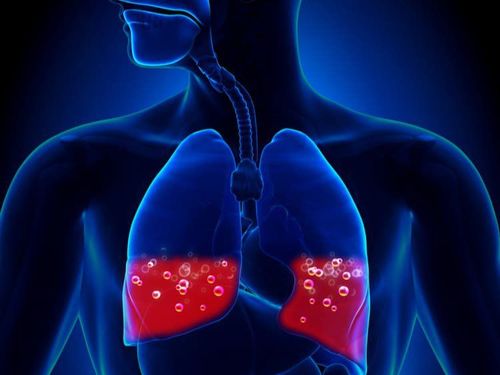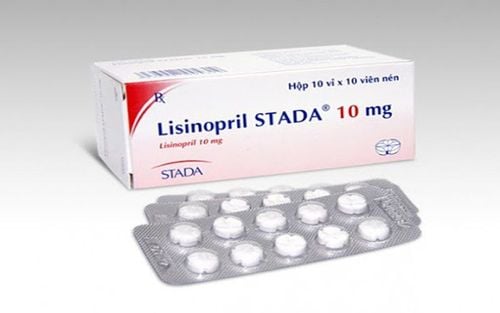This is an automatically translated article.
The article was professionally consulted by Doctor General Internal Medicine - Department of Examination & Internal Medicine - Vinmec Hai Phong International General Hospital.
Treatment of heart failure grade 3 is a long journey that requires the patient to adhere to it for life. How long to live with grade 3 heart failure depends a lot on the mental health of the patient. Patients need to stay optimistic and comfortable to be able to improve and treat the disease.
1. What is grade 3 heart failure? Common symptoms of grade 3 heart failure
Heart failure is a condition in which the heart cannot pump enough blood to meet the body's needs. Over time, problems such as narrowing of the arteries (coronary artery disease) or high blood pressure gradually make the heart too weak or stiff to pump effectively, resulting in blood circulating through the heart as well as throughout the body at a faster rate. slower rate.
Heart failure grade 3 is the average grade according to the New York Heart Association (NYHA) heart failure classification system. During this period, the patient is limited in physical activities. Even with light exercise, symptoms of heart failure such as fatigue, tachycardia, shortness of breath, dry cough or angina were observed. Symptoms do not appear at rest. This is also the stage most people suffer from.
2. Complications of heart failure grade 3
Stage 3 heart failure can cause some dangerous complications and quickly turn into grade 4 heart failure if not managed and treated well. The complications are:
Acute pulmonary edema: An emergency medical emergency due to fluid accumulation in the lungs, if left for a long time, the patient will fall into a state of severe respiratory failure, impaired consciousness.

Kidney damage: Heart failure causes decreased kidney function because the kidneys do not receive enough nourishing blood to perform the function of eliminating and filtering waste and excess fluid. Liver damage: Blood stagnation in the liver for a long time reduces liver function, causing hepatomegaly, cirrhosis,... Complications from blood clots: Blood clots easily appear due to circulatory stagnation, which will cause embolism, lead to myocardial infarction, cerebrovascular accident,...
3. How long to live with heart failure grade 3? Here is the answer
The life expectancy of patients with heart failure depends very much on the time of diagnosis, disease severity, comorbidities, age, lifestyle and response to treatment,... For example, if If you have grade 3 heart failure due to valvular regurgitation, which is detected early, the heart structure has not been changed much, the disease can be cured by replacing the heart valve. Similarly, heart failure grade 3 due to coronary artery disease, stenting to prevent stenosis, cardiac function is restored and the patient will have a life expectancy close to normal.
4. Caring for patients with heart failure grade 3

Treatment of heart failure grade 3 is a long journey that requires the patient to adhere to it for life. How long to live with grade 3 heart failure depends a lot on the mental health of the patient. Patients need to stay optimistic and comfortable to be able to improve and treat the disease.
Stage 3 heart failure has a significant psychological impact on the patient and their family. Therefore, palliative care at this stage is very important for the patient to calmly accept, avoid feelings of insecurity and worry about the disease.
In addition to drug treatments, grade 3 heart failure can also be treated with the use of devices such as:
ICD defibrillator pacemakers and synchronous cardiomyopathy (CRT). Ventilator assist device. When heart failure progresses to stage 3, symptoms such as fatigue, palpitations, shortness of breath, or angina appear with mild exertion and limited physical activity. At this time, in addition to active treatment under the guidance of the doctor, the patient also needs to be cared for mentally to help reduce symptoms and improve health.
Proper care for heart failure is important to help patients relieve symptoms and restore health. Here are care notes for patients with heart failure grade 3 that you need to know.
When the patient finds it difficult to breathe
Make it easier for the patient to breathe by loosening clothes, aspirating sputum (if any). Avoid strenuous activities, rest in bed in a half-lying, half-sitting position. If the patient has paroxysmal nocturnal dyspnea, it is advisable to lie down in a semi-sitting position from the beginning of the night to help breathe easier. Edema due to peripheral blood stasis
Always remind the patient to take their medication on time or have it available for them to use. Diuretics are usually given in the morning to avoid insomnia due to nocturia. Record daily weight, if you detect rapid weight gain, edema should immediately notify the treating doctor. Drink only when thirsty. The amount of water to drink is equal to the total amount of urine in 24 hours + 300 ml. Eat less salt, reduce salt to limit water retention, making edema worse. Patients feel nausea, loss of appetite
In case it is due to side effects of the drug or due to gastrointestinal disease, it is necessary to change the type of treatment drug, take more medicine to treat digestive diseases as prescribed by the doctor. . If it is due to cardiovascular disease causing decreased contractility in the stomach, caregivers need to change the way they prepare food for the patient such as:
Soft, liquid, easy to digest foods such as porridge, vermicelli, vermicelli, etc. soup or white rice; Between snacks, you can add 100 ml of milk. Choose unsweetened or low-fat skim milk. Can choose milk for diabetics to use. Eat small meals, eat them little by little. The processing method should be varied and suitable for the taste. Encourage patients to eat more vegetables and fruits containing potassium, because they are very good for patients with heart failure, such as bananas and peppers, sweet potatoes, pumpkin, carrots, asparagus, fish,... Do not use processed foods Available products have a lot of salt such as pickles, eggplant, shrimp paste, bread, smoked meat, pate, sausages,... Patient feels tired, sore
Help, encourage patient to exercise often Regularly, moderately, can walk, walk around the room, around the house. Regularly massage the extremities, especially the lower limbs to make peripheral blood easier to return to the heart, reduce the risk of vascular occlusion, and do gentle exercise without causing fatigue. When the patient feels worried about the illness
Need to explain to them about the disease in a positive way. At this time, relatives and family members must be a firm support for the patient, always caring, sharing, and helping the patient overcome the burden of illness.
Managing heart failure is a team effort and you are a key member of the team. Your cardiologist will prescribe you medications and manage other health problems. Other team members, including nurses, nutritionists, pharmacists, exercise specialists and social workers - will help you through your illness. But it's up to you to take medication, change your diet, make lifestyle changes and follow-up appointments on time and you become an active member of the team.
Heart Center - Vinmec Times City International General Hospital is one of the few specialized heart failure clinics built the earliest in Vietnam. Vinmec Heart Failure Clinic has referenced the model of the US and Singapore, bringing hope of effective treatment for patients with heart failure.
Please dial HOTLINE for more information or register for an appointment HERE. Download MyVinmec app to make appointments faster and to manage your bookings easily.













